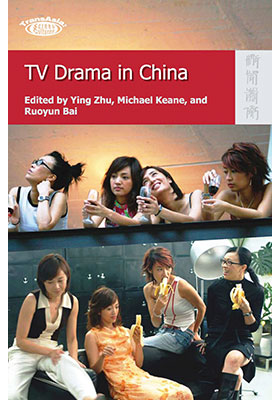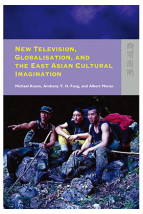TV Drama in China
(中國電視劇集)
ISBN : 978-962-209-941-8
October 2008
288 pages, 6″ x 9″, 4 b&w illus.; 1 figure & 1 table
Ebooks
Also Available on
This collection of essays brings together the first comprehensive study of TV drama in China. Examining in depth the production, distribution and consumption of TV drama, the international team of experts demonstrate why it remains the pre-eminent media form in China. The examples are diverse, highlighting the complexity of producing narrative content in a rapidly changing political and social environment. Genres examined include the revisionist Qing drama, historical and contemporary domestic dramas, anti-corruption dramas, “pink” dramas, Red Classics, stories from the Diaspora, and sit-coms. In addition to genres, the collection explores industry dynamics: how TV dramas are marketed and consumed on DVD, and China’s aspirations to export its television drama rights. The book provides an international and cross-cultural perspective with chapters on Taiwanese TV drama in China, the impact of South Korean drama, and trans-border production between the Mainland and Hong Kong.
“Television drama is the epicenter of Chinese screen culture and this landmark collection provides insightful and wide-ranging reflections on the themes, styles, and social significance of China’s most popular TV shows. Provocative and comprehensive, TV Drama in China makes a signal contribution to our understanding of East Asian media and society today.” —Michael Curtin, author of Playing to the World’s Biggest Audience
“TV drama is the most popular cultural form and institution in China. This anthology provides a timely, focused and comprehensive examination of this very important topic. Insightful in analysis and rich in data, the anthology will make a key reference for anyone interested in the sense-making, production, reception and other aspects of Chinese TV drama.” —Joseph M. Chan, The Chinese University of Hong Kong and Fudan University
“A highly intelligent addition to the growing field of television studies in China. Zhu, Keane and Bai are well known for their scholarship and their commitment to developing media studies outside the western sphere. Here, they have brought new and established colleagues in a fascinating discussion of television, China and the many strategies of reading screens in a complex viewers’ market.” —Stephanie Hemelryk Donald, University of Sydney
“This volume is a timely addition to the collection of academic books on Chinese television as Chinese TV hits its fiftieth-year mark in September 2008. The expert team of editors and contributors work with a transnational and trans-cultural framework, which contributes to the book’s high quality in research and coverage. The book no doubt makes a valuable contribution to research on Chinese TV dramas.” —Hu Zhifeng, Communication University of China and editor-in-chief of Modern Communication





